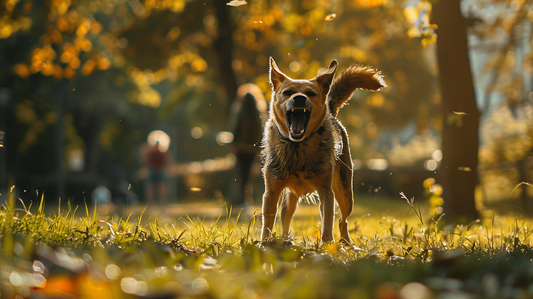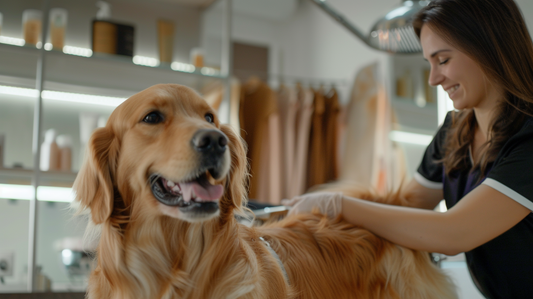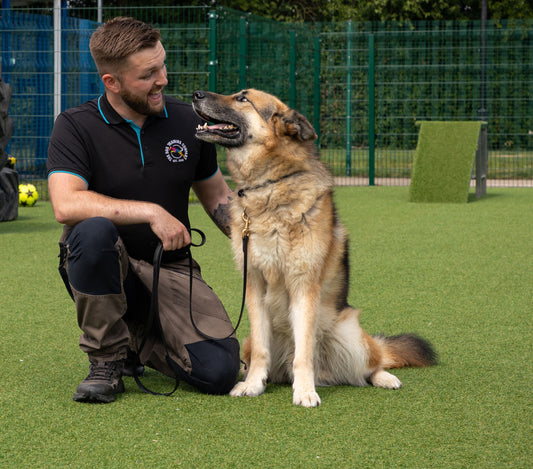
The Canine Crisis: Why Is There a Surge of Dog Bites in the UK?
Recent reports, such as the one published on the BBC website highlight the alarming increase in dog bites in the United Kingdom. The problem, experts argue, stems from a lack of proper training, responsible pet ownership, and irresponsible breeding practices. In this blog post, we will delve into the factors that contribute to this canine crisis, the consequences of poorly raised dogs, and potential solutions to ensure a safer environment for both humans and their four-legged companions.
The Root of the Problem: Inadequate Training, Raising Practices, and Irresponsible Breeding
Insufficient knowledge and understanding
The growing trend of dog ownership has led to a surge in inexperienced pet owners who may not fully understand the intricacies of dog behaviour, training, and socialisation. These individuals may not grasp the importance of early training and socialisation, leading to dogs that are poorly adjusted to living with humans, other animals, and various situations. Check our blog post on why treat training could be dangerous for more information on the subject.
Misguided training methods
Some pet owners resort to outdated or misguided training methods which can exacerbate behavioural issues and increase the likelihood of aggression. Proper teaching and scientifically-backed training methods, on the other hand, yield better results and lead to well-adjusted pets. For more information on the potential issues of some training methods, check out our blog post on why puppy classes and parties can be detrimental.
Lack of proper socialisation
Dogs that are not exposed to various environments, people, and other animals during their critical socialisation period (generally between 3 and 14 weeks of age) are more likely to develop fear, anxiety, and aggression. A well-socialised dog is better equipped to handle different situations and is less likely to resort to biting. Read our post on how to find a good dog breeder for more tips on selecting a well-socialised puppy.
Irresponsible breeding practices
Unregulated and unethical breeding practices, such as puppy mills and backyard breeding, contribute to the proliferation of dogs with genetic predispositions to health and behavioural issues. These irresponsible breeding practices prioritise profit over the welfare of the animals, often resulting in dogs that are more susceptible to aggression and other negative behaviours. For guidance on selecting the right puppy, read our post on which puppy to pick from a litter.
Breed-specific misconceptions
The stigma surrounding certain breeds, such as pit bulls and Rottweilers, has led to misguided beliefs and unfounded fears. While breed may play a role in an individual dog's temperament, it is essential to remember that each dog is an individual, and proper training, socialisation, and responsible breeding practices are the most critical factors in their behaviour. Visit our blog post on TV dog trainers to learn more about the potential risks of certain training methods.
The Consequences of the Canine Crisis
Public safety concerns
The increase in dog bites has led to growing public safety concerns, as individuals fear being bitten or having their pets attacked. This can strain relationships between neighbours and create a hostile environment for responsible dog owners and their pets. Learn more about the issue in our blog post on why incorrect dog training and raising is leading to higher numbers of dog bites.
Animal welfare issues
Poorly trained, aggressive dogs, and those born from irresponsible breeding practices are more likely to end up in shelters, putting a strain on already overcrowded facilities. Additionally, these dogs are less likely to be adopted, increasing the likelihood of euthanasia.
Legal and financial ramifications
Dog bites can lead to legal disputes, with pet owners facing potential fines, lawsuits, and even the forced removal of their pets. This can result in significant financial burdens and emotional distress for all parties involved. To better understand the costs associated with dog training, read our post on how much does dog training cost.
Solutions and Preventative Measures
Education and awareness
Public education campaigns focused on responsible pet ownership, proper training techniques, and the importance of early socialisation can help inform prospective and current dog owners about their responsibilities. Additionally, awareness about the dangers of supporting irresponsible breeding practices can discourage potential pet owners from buying animals from unethical sources.
Accessible training resources
Affordable and accessible dog training resources, such as classes, workshops, and online materials, can help pet owners gain the knowledge and skills necessary to raise well-adjusted pets. Check out our puppy training packages and dog training consultation options to get started.
Breed-neutral legislation and responsible breeding regulations
Replacing breed-specific legislation with breed-neutral regulations can help shift the focus to responsible ownership and evidence-based training methods, reducing the stigma associated with certain breeds. Implementing stricter regulations on dog breeding, such as mandatory health testing and licensing, can help combat irresponsible breeding practices that contribute to behavioural issues.
Support for dog owners
Community-based support systems and resources can help pet owners access the tools and information they need to care for their pets responsibly. Encouraging local pet-related businesses and dog trainers to provide free or low-cost resources can create a supportive network for pet owners in need of guidance. Learn about our dog training services in Sheffield, Wakefield, Leeds, Harrogate, and Doncaster.
Promoting adoption and responsible sourcing of pets
Educating the public about the benefits of adopting pets from shelters and rescue organisations can help reduce the demand for dogs from irresponsible breeders. Encouraging responsible sourcing of pets and supporting ethical breeders who prioritise the health and temperament of their animals can lead to a decrease in dogs with behavioural issues.
Conclusion
The increase in dog bites in the UK is a multifaceted issue rooted in inadequate training, raising practices, and irresponsible breeding. By addressing these concerns through education, accessible resources, and legislative changes, we can work towards creating a safer and more harmonious environment for humans and their canine companions. The onus is on all stakeholders, including pet owners, breeders, trainers, and policymakers, to contribute to a more responsible and compassionate dog ownership culture. Visit our homepage for more information on The Dog Training Company and our services.






